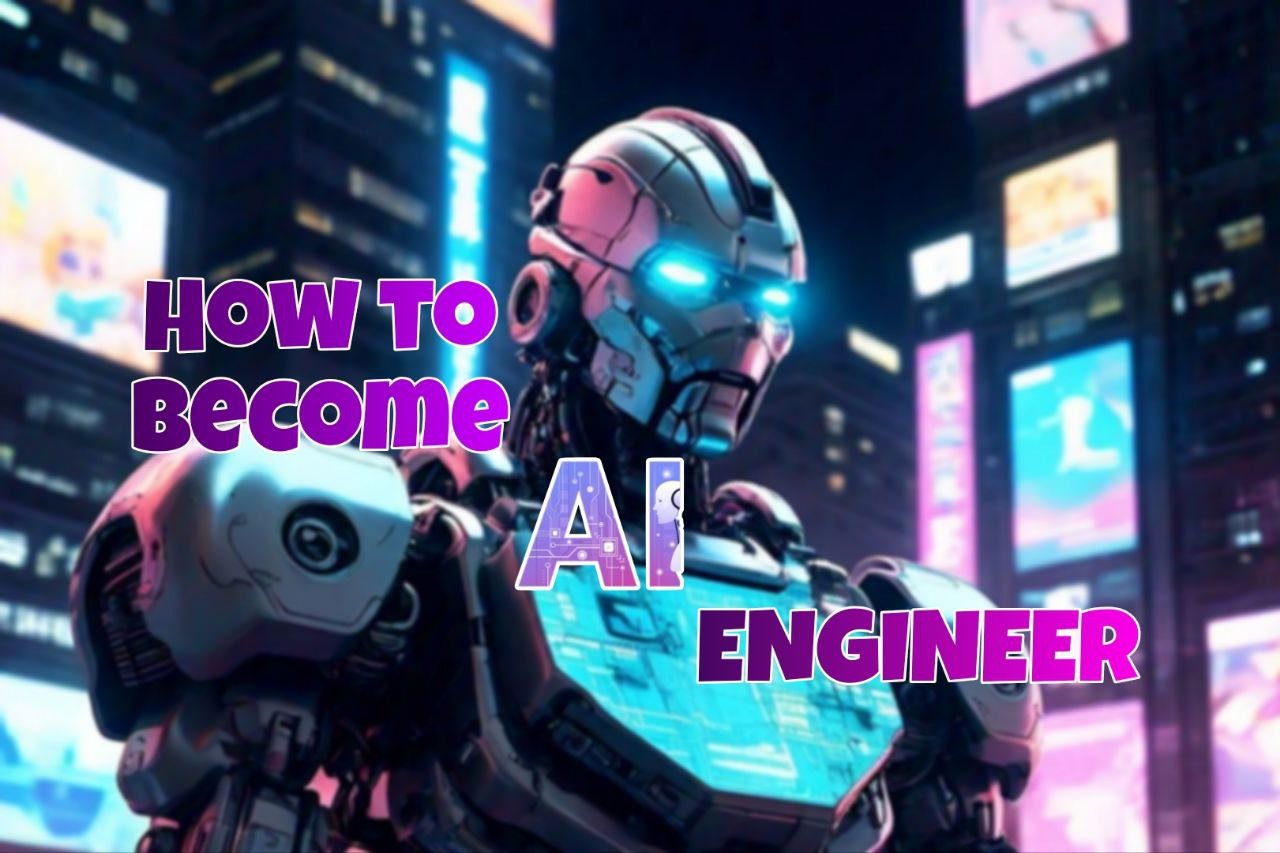The field of Artificial Intelligence (AI) is rapidly transforming the world around us. From self-driving cars to personalized recommendations, AI is revolutionizing every industry, making AI engineers some of the most in-demand professionals.
If you’re a student finishing your 12th grade in 2025 and are considering a career in AI, you’re on the right track. However, with so many paths available, it can be overwhelming to know where to begin.
This guide will walk you through the top 10 options to become an AI engineer after 12th. Whether you’re looking for a traditional university degree or hands-on experience, there are multiple avenues to explore. By the end of this post, you’ll have a clearer understanding of how to make AI your career.
10. Networking and Building Industry Connections
Building a professional network is crucial to success in AI. By networking with industry experts, attending conferences, joining LinkedIn groups, and collaborating on AI projects, you can stay ahead of trends and find opportunities in the field.
What to Expect:
- Professional Communities: Engage with AI professionals through conferences, webinars, and forums (e.g., NeurIPS, ICML, LinkedIn AI groups).
- Mentorship: Seek out mentors in the AI field who can guide you in your learning journey and provide career advice.
Why It’s Important:
- Networking opens doors to job opportunities, collaborations, and mentorship.
- Staying connected with the AI community allows you to keep up with the latest advancements and share ideas with like-minded professionals.

9. Explore AI Research and Development
If you’re interested in the cutting-edge technologies that drive AI forward, research is the perfect avenue. Working in AI research—whether at a university, tech company, or research lab—allows you to explore new AI methodologies and contribute to groundbreaking innovations.
What to Expect:
- AI Research Labs: Work on foundational AI techniques and explore new areas of AI such as AI ethics, explainability, and AGI (Artificial General Intelligence).
- Collaboration: Research projects often involve collaboration with other experts, creating an environment of constant learning and discovery.
Why It’s Important:
- AI research often leads to breakthrough innovations and new technologies that shape the future of AI.
- Research experience can lead to academic positions or high-level industry roles.
8. Advanced Studies: Master’s or PhD in AI
If you’re passionate about AI and want to explore its deeper, more theoretical aspects, pursuing a Master’s or PhD in AI or Machine Learning can open doors to advanced roles in research, development, and academia.
What to Expect:
- Master’s Programs: Focus on advanced topics like deep learning, reinforcement learning, and robotics. You’ll also have opportunities to specialize in areas like natural language processing, computer vision, or ethical AI.
- PhD Programs: Typically research-oriented, PhD programs allow you to contribute original ideas to the AI field and work on innovative technologies.
Why It’s Important:
- A Master’s or PhD program provides a deeper understanding of AI’s complex theories and algorithms.
- These degrees often lead to specialized roles in AI research, academia, or leadership positions in AI-focused companies.
Top Universities Offering These Programs:
- Stanford University
- Carnegie Mellon University
- University of Oxford
Top 10 Career Options After 12th Science in 2025
7. Engage in AI Projects and Competitions
A personal AI project or participation in AI competitions can set you apart from other candidates in the job market. Building projects like a chatbot, image recognition system, or recommender system will help you apply your knowledge and develop a robust portfolio.
What to Expect:
- Kaggle: Compete in machine learning challenges and data science competitions to solve real-world problems.
- Personal Projects: Build projects that align with your interests, whether it’s computer vision, natural language processing, or robotics.
Why It’s Important:
- Having a portfolio of completed AI projects proves to employers that you have the technical ability to develop real-world AI systems.
- Competitions like Kaggle are a great way to test your skills against other developers and showcase your abilities to the global AI community.

6. Master Key Programming Languages for AI
AI development requires expertise in specific programming languages, most notably Python, R, C++, and Java. Mastering these languages is crucial for implementing AI models and developing AI-based systems.
What to Expect:
- Python: The most popular programming language for AI due to its simplicity and extensive libraries like TensorFlow, Keras, and PyTorch.
- R: Often used for statistical analysis and data visualization, making it a favorite for data scientists.
- C++: Common in performance-critical applications, especially in robotics and autonomous systems.
Why It’s Important:
- Python is the primary language used for most AI and machine learning projects, and it’s widely used in AI research and industry applications. A strong grasp of Python will be essential for developing your AI projects.
- Java and C++ are also valuable for working on high-performance AI systems and applications where speed and optimization are crucial.
Where to Learn:
- Platforms like Codecademy, Coursera, and Udemy offer beginner to advanced courses in these languages.
5. Internships and Real-World Experience
Real-world experience is invaluable in the field of AI. Internships allow you to apply theoretical concepts in practical environments, gain exposure to cutting-edge AI technologies, and build a professional network that can help you launch your career.
What to Expect:
- Learning on the Job: Interns work on projects that involve coding, building machine learning models, and solving data-driven problems using AI.
- Mentorship: Internships often provide opportunities to work closely with experienced AI engineers, who can mentor you and guide you through complex problems.
Why It’s Important:
- Internships provide you with real, hands-on experience, which is essential for demonstrating your skills to future employers.
- They also help you understand the current challenges in AI development, allowing you to better prepare for full-time roles in the industry.
How to Find Internships:
- Platforms like LinkedIn, Internshala, and Glassdoor are great for finding AI internships.
- Reach out directly to tech companies like Google, Microsoft, Facebook, and startups that specialize in AI and machine learning.

4. Join AI Bootcamps
AI bootcamps are intense, short-term programs designed to teach you the skills needed for AI roles in just a few months. These programs focus heavily on practical training, problem-solving, and real-world applications of AI and machine learning.
What to Expect:
- Structured Learning: Bootcamps typically last between 8-12 weeks and cover AI fundamentals like Python, data analysis, machine learning algorithms, and neural networks.
- Hands-On Projects: You’ll work on real AI projects and gain practical experience, which is essential for securing a job in the field.
Why It’s Important:
- AI bootcamps are perfect for those who want to dive into AI immediately, without spending years in university. They focus on equipping you with specific, job-ready skills.
- Many bootcamps partner with leading tech companies, providing direct job placement assistance and networking opportunities.
Popular Bootcamps:
- Springboard AI Bootcamp
- Flatiron School
- General Assembly
Top 10 Career Options After 12th in 2025: check here
3. Online Courses and Certifications in AI
If you’re looking for a flexible, cost-effective way to get started in AI, online courses and certifications are a great option. Platforms like Coursera, Udemy, edX, and LinkedIn Learning offer courses created by top universities and industry professionals.
What to Expect:
- Popular Courses: Deep Learning Specialization by Andrew Ng (Coursera), Google AI, IBM AI Engineering, and Machine Learning (Stanford University).
- Hands-On Projects: These courses usually include practical assignments that help you apply your knowledge in real-world scenarios.
Why It’s Important:
- Online certifications allow you to learn at your own pace while acquiring the latest, industry-relevant skills in AI.
- These certifications are widely recognized and can give you a competitive advantage in the job market. They also complement your formal education, giving you a specialized skill set in AI and machine learning.
How It Helps:
- You can build a portfolio of AI projects on platforms like GitHub, which is vital when applying for internships or jobs.
- Many online platforms also offer career coaching and job placement assistance, helping you land your first AI role.
2. Bachelor’s Degree in Data Science or Artificial Intelligence
Given the growing importance of AI, many universities now offer specialized undergraduate degrees in Artificial Intelligence, Data Science, or Machine Learning. These programs provide a targeted education in AI technologies, data analytics, and machine learning from the very beginning, without the need for a broad computer science curriculum.
What to Expect:
- Specialized Curriculum: Courses on AI fundamentals, Machine Learning, Natural Language Processing (NLP), Robotics, Deep Learning, Neural Networks, and Big Data.
- Focus on Practical Skills: Many of these programs emphasize practical, hands-on learning to help students develop the skills needed to design AI systems and work with real-world data.
Why It’s Important:
- A specialized degree in AI or Data Science will give you an edge as it aligns directly with industry needs and technological trends.
- The curriculum is designed to equip you with the technical expertise required for roles in AI engineering, making you job-ready faster.
Top Universities Offering This Program:
- University of California, Berkeley
- Massachusetts Institute of Technology (MIT)
- University of Cambridge
1. Pursue a Bachelor’s Degree in Computer Science or Related Field
A Bachelor’s degree in Computer Science, Information Technology (IT), or Software Engineering remains one of the most solid and traditional routes to becoming an AI engineer. These degrees focus on providing a strong foundation in the key areas of computer science—programming, algorithms, data structures, and software development—giving you the technical base to explore AI-related concepts.
What to Expect:
- Core Subjects: Programming languages (Python, Java, C++), Data Structures, Algorithms, Operating Systems, Software Engineering, Computer Networks, and Databases.
- AI Foundation: While AI-specific courses may not be the main focus initially, these programs often offer electives in machine learning, data science, and AI later in the curriculum.
Why It’s Important:
- A B.Tech/B.E. degree in computer science gives you a holistic understanding of computing and problem-solving techniques. AI is built on these fundamentals.
- This degree also opens the door to various related fields like software development, cybersecurity, and cloud computing, offering flexibility in your career.
Top Universities Offering This Program:
- IITs (Indian Institutes of Technology)
- NITs (National Institutes of Technology)
- Internationally: MIT, Stanford University, University of California, Berkeley.

FAQs
Q1. What qualifications do I need to become an AI engineer after 12th?
A1. To become an AI engineer, you typically need a strong foundation in mathematics and programming. After 12th, you can pursue:
A Bachelor’s degree in Computer Science, Data Science, or Artificial Intelligence.
Online certifications in AI, machine learning, or data science.
Internships or projects to gain hands-on experience.
Q2. Do I need a Bachelor’s degree to become an AI engineer?. Do I need a Bachelor’s degree to become an AI engineer?
A2. While a Bachelor’s degree in Computer Science or a related field is one of the most common routes, it is not absolutely necessary. Many aspiring AI engineers have successfully pursued online certifications, bootcamps, and self-taught routes to break into the industry.
However, having a degree does provide a structured educational background and opens up more opportunities, especially for those seeking high-level roles or research positions.
Q3. What are the best online courses for AI?
A3. There are several reputable platforms offering high-quality AI courses:
Coursera: Offers specialized programs such as the Deep Learning Specialization by Andrew Ng and the AI for Everyone course.
edX: Features courses from top universities like MIT, Harvard, and UC Berkeley.
Udacity: Provides a Nanodegree in AI and machine learning that includes hands-on projects and mentorship.
Udemy: Offers affordable courses on various AI and machine learning topics.
These platforms provide both beginner-level and advanced courses.
Q4. Is it necessary to know machine learning to become an AI engineer?
A4. Yes, machine learning (ML) is a core component of AI engineering. AI engineers typically work with machine learning models to develop intelligent systems. Understanding concepts like supervised learning, unsupervised learning, and deep learning will be essential for your career.
However, other areas such as data science, natural language processing (NLP), and computer vision are also important specializations in AI.
Q5. What are the job prospects for AI engineers in 2025?
A5. The demand for AI engineers is expected to continue growing well into 2025 and beyond. As more industries adopt AI technologies for automation, analytics, and innovation, the need for skilled professionals will increase. AI engineers can expect opportunities in sectors such as:
Tech companies (e.g., Google, Facebook, Microsoft, IBM).
Healthcare (AI-powered diagnostics and personalized medicine).
Finance (fraud detection, risk assessment, algorithmic trading).
Autonomous vehicles and robotics.
Conclusion
Becoming an AI engineer after 12th in 2025 is an exciting and challenging journey. Whether you pursue a formal degree, online courses, or gain experience through internships and projects, there are multiple paths to success. By continuously learning, developing hands-on skills, and building a strong network, you’ll be well on your way to making a meaningful impact in the world of Artificial Intelligence.



